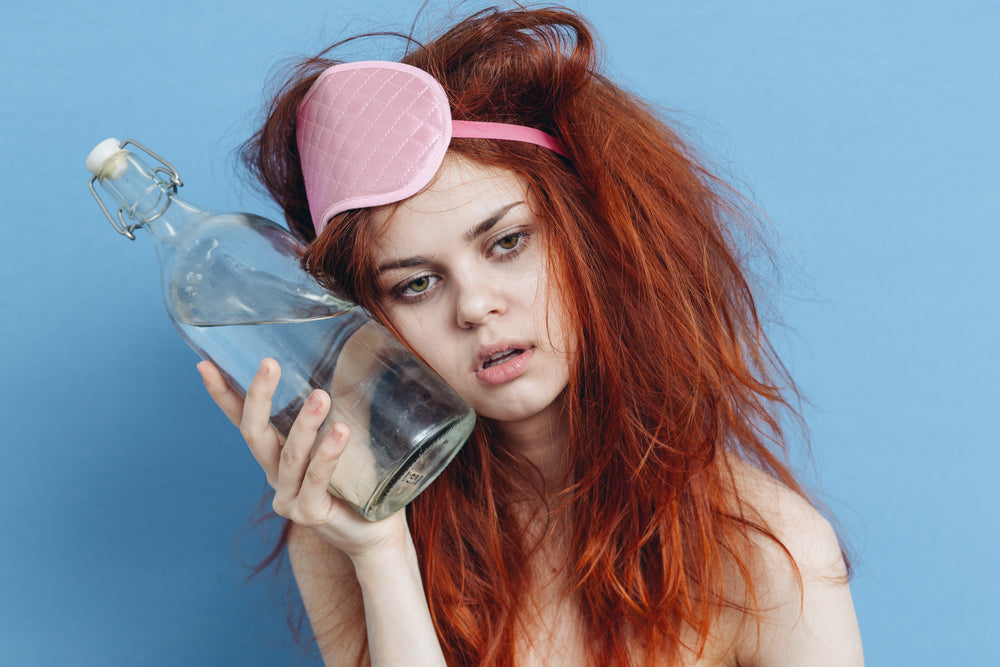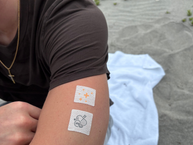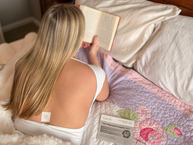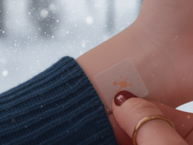Did you party a little too much last night? Have you learned that you’re no longer at an age when you could handle so much alcohol without many after-effects? Do you have to go to work early and need a quick way to recover?
There’s no doubt that prevention is the surest and safest way to feel good the morning after a good time, but hangovers can happen. When you have a hangover, you might wake up with a headache and have symptoms such as diarrhea, fatigue, nausea, and even vertigo or dizziness, sweating, high blood pressure, and rapid heart rate.
What can you do? Besides preventing a hangover with prudent decisions at the moment you drink, you can try some remedies at home. Always be sure to drink responsibly and talk to your healthcare provider about any concerning health symptoms or before using a nutritional supplement, such as the PatchAid Hangover Plus Vitamin Patch.
Prevention First
Drinking responsibly, if at all, is the first way to prevent a hangover and its severe symptoms. These are some tips.
- Don’t drink on an empty stomach.
- Drink alcoholic beverages slowly.
- Have water with and between alcoholic beverages.
- Monitor how you feel and stop before you feel out of control.
- Stick to clear alcoholic beverages, such as gin and vodka, instead of dark-colored ones such as red wine, tequila, and whiskey. Both types have ethanol, but dark-colored alcoholic beverages have more methanol compared to clear beverages. Methanol may cause more severe hangovers.
It’s best to stick to a maximum of one serving of alcohol daily if you’re female, or two glasses if you’re male. That’s if you choose to drink at all. If you have diabetes, are a bariatric surgery patients, or have other conditions, you might want to avoid alcohol altogether and to ask your healthcare provider specifically about precautions.
Ways to Recover from a Hangover
If you drink too much, you might wake up with a hangover. It’s hard to know how many drinks will lead to a hangover because each person handles alcohol differently. It’s safe to say that you’re likely to get a hangover if you get intoxicated. These factors can cause hangovers.
- Poor sleep. You’re likely to have less deep sleep after drinking, even if you feel tired and fall asleep faster that night. You can wake up feeling tired.
- Mild dehydration. Alcohol acts as a diuretic, leading your body to lose water.
- Mild withdrawal. Alcohol can make you feel more relaxed, but the effect can be the opposite once it wears off, leading you to feel more anxious.
- Inflammation: Systemic inflammation can make you feel generally bad.
- Irritation of the gastrointestinal tracts, making acid release increase and leading to nausea.
These are some ways to recover from a hangover.
1. Drink water.
Drinking water and other hydrating beverages can help reverse the dehydrating effects of drinking alcohol. Water, low-sodium broth, coffee, and herbal tea are just a few possible choices. It may be hard to drink if you feel nauseous, but anything you can get down can help.
2. Take vitamins.
Drinking too much can lead to lower levels of some B vitamins. In addition, people who have adequate levels of B vitamins may have less severe hangover symptoms. The Hangover Plus Vitamin Patch by PatchAid has B vitamins and other essential nutrients to help prevent deficiencies.*
The Hangover Plus Vitamin Patch also has a variety of other ingredients. It includes antioxidants, such as curcumin, vitamin C, vitamin E, and glutathione. Antioxidants may help support normal immune function and normal levels of inflammation in the body. The patch also hasaProprietary PatchAid blend that includes acai berry and ashwagandha extracts, green tea extract, and beetroot extract.
At a time when you may feel nauseous, the patch is a convenient form so you don’t have to worry about an upset stomach. It’s easy to take when you want to get over a hangover quickly. It’s also convenient because you can use multiple PatchAid patches at once, so there’s no need to stop your other regimens when you use a Hangover Plus Vitamin Patch.
3. Have carbohydrates.
Drinking alcohol can lower blood sugar, and eating carbohydrates raises blood sugar. Bread products, such as bagels, bread, pita, and English muffins, are all high in carbs. So are other starchy foods, such as potatoes, pasta, and pretzels, as are fruit and sugary foods, such as candy and desserts. Crackers or toast and orange juice may be appealing if you have nausea.
Still, it’s important to be especially careful if you have diabetes. Test blood sugar before you drink and while drinking and continue to check throughout the night.
4. Have caffeine.
Caffeine doesn’t have any powers that are specific to alcohol or hangovers, but it can perk you up if you feel tired when you wake up. Coffee, tea, and colas are sources of caffeine.
5. Drink alcohol.
This may seem paradoxical, but there’s a theory behind the recommendation to drink alcohol to cure a hangover. In some ways, a hangover is like a withdrawal symptom of an alcohol addiction, since it results in part from the removal of alcohol from GABA receptors on brain cells. Having a bit of alcohol may make you feel better - but be warned that it’s not a cure. Depending on alcohol to cure a hangover can just lead to a vicious cycle and the likelihood of alcohol abuse.
Nobody wants to feel a hangover, but it can happen after a night with too much partying and alcohol. There are some ways to recover more quickly from a hangover that are based on science and the mechanisms of alcohol in your body. Staying hydrated and making sure you get nutrients, such as those in the Hangover Plus Vitamin Patch, are some strategies. Be sure to ask your healthcare provider about alcohol’s effects, safe drinking, and the best nutritional supplements for you before trying any.
*The Food and Drug Administration has not evaluated these statements. PatchAid products are not intended to diagnose, treat, cure or prevent any disease. Anyone with a medical condition should seek the advice of a licensed medical practitioner. Individual results may vary.







